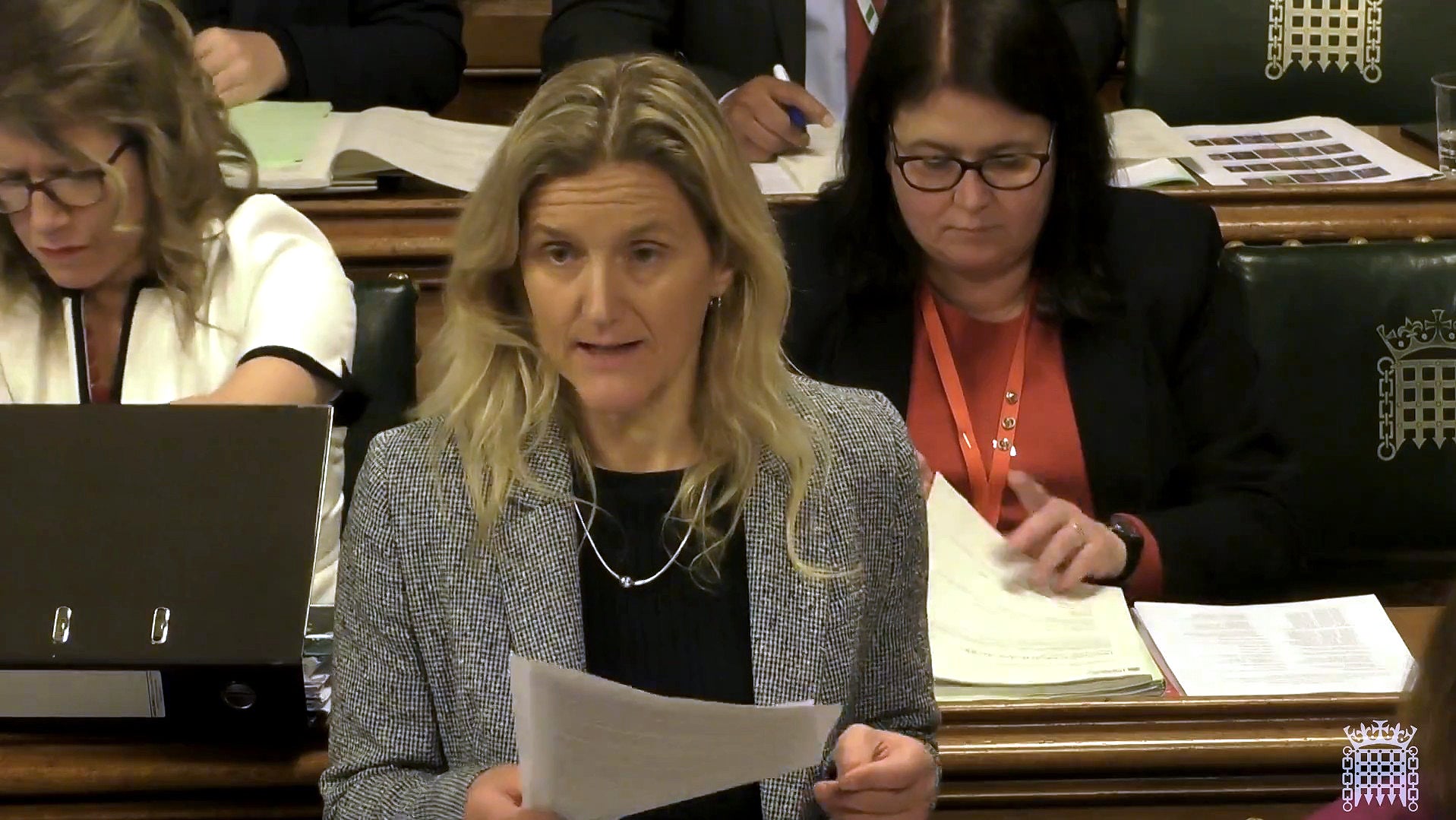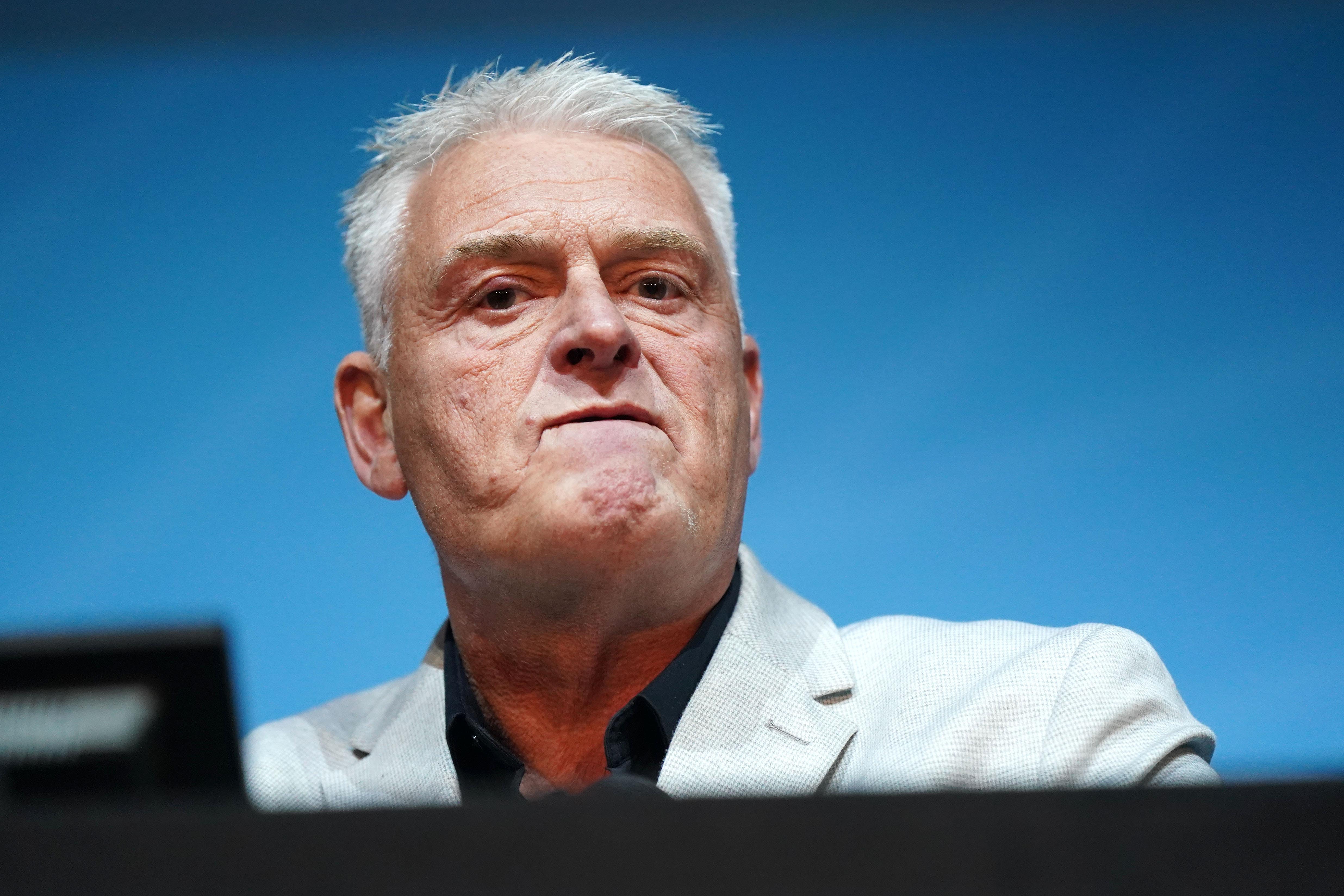MPs who previously supported the assisted dying bill have announced that they will change their vote after a major safeguard was ditched from the proposed legislation.
It comes as Kim Leadbeater, the Labour MP behind the historic bill, today announced her intention to get rid of the much-vaunted safeguard of a High Court judge having the final say in court over an application.
Ms Leadbeater now wants to replace that stage with a commission made up of psychiatrists and social workers who would be involved in approving applications.
The MP for Batley and Spen denied that she was watering down the safeguard, but the dramatic move has already changed the perspective of some MPs.

Reform’s Rupert Lowe had already indicated that he would be voting against the Terminally Ill Adults (End of Life) Bill at third reading, having been unconvinced by the committee-stage scrutiny of the bill after initially voting in favour.
Now his party colleague Lee Anderson has joined him in opposing the legislation.
Mr Anderson told The Independent: “I support assisted dying, but this bill becomes less credible by the day. It looks like it’s being forced through at any cost, therefore I fail to see how I can support this bill at third reading.”
Liberal Democrat grandee Alistair Carmichael had also backed the bill at second reading, but is now rethinking his support.
An attempt to safeguard the bill further by raising the threshold of the Mental Capacity Act was also rejected by a majority of the committee as the 23 MPs went through the bill line by line.
Meanwhile, The Independent understands that a further 140 MPs who voted in favour are now in play to change their votes. The bill passed the second-reading stage with a majority of 55, and only 28 would need to change their minds for it to fail.
Of the 140, 60 highlighted the High Court judge hearing safeguard as a reason for supporting the bill. Another 20 highlighted judicial oversight as a crucial element, and a further 60 had said publicly or privately that they wanted the debate to be heard but would make a final decision at the final, third-reading stage.

The 60 who specifically referenced the safeguard of a High Court judge were: Lee Dillon, Kate Dearden, Joe Powell, Sarah Green, Wera Hobhouse, Danny Chambers, Deirdre Costigan, Sarah Jones, Connor Rand, Charlotte Cane, Joe Morris, Cameron Thomas, John Whitby, Toby Perkins, Joani Reid, Jenny Riddell-Carpenter, Luke Pollard, Bobby Dean, Rachel Hopkins, Natasha Irons, Lewis Atkinson, Helen Morgan, Jake Richards, Peter Kyle, Jess Phillips, Alex Ballinger, Louise Jones, Georgia Gould, Tessa Munt, Cat Eccles, Jon Pearce, Kirsty McNeill, Luke Taylor, Claire Young, Clive Betts, Jayne Kirkham, Mark Sewards, Lizzi Collinge, Jim Dickson, Hilary Benn, Gill German, Freddie van Mierlo, Tom Rutland, Andrew Snowden, Will Stone, Sarah Sackman, Leigh Ingham, Andrew Lewin, Josh Babarinde, Tony Vaughan, Clive Efford, Fabian Hamilton, Gerald Jones, Colum Eastwood, Dan Aldridge, Sarah Russell, Liz Kendall, Rosie Wrighting, Cat Smith, and Sarah Owen.
The MPs who specifically referenced the importance of judicial oversight were: Manuela Perteghella, Phil Brickell, Chris Vince, Sharon Hodgson, Lloyd Hatton, Chris Coghlan, Danny Beales, Chris Philp, Steve Race, Kit Malthouse, Tom Hayes, Jeevun Sandher, Pam Cox, Kate Osborne, Warinder Juss, Alex Norris, Ellie Reeves, Paula Barker, Lucy Powell, and Rishi Sunak.
The list excludes Ms Leadbeater herself, who hailed the High Court judge safeguard during the debate.
Privately a number of MPs now believe that the provision for sign off by a High Court judge was in fact always a ruse to get this Bill through second reading and the intention was then to dump it at a later stage.
Responding to critics of her decision to remove the High Court judge safeguard on Radio 4’s Today programme, Ms Leadbeater said: “It wouldn’t be done in private, it would be taking into account patient confidentiality, but there would be public proceedings.
“And actually, I think it’s really difficult to suggest that, by having three experts involved in this extra layer of scrutiny, that is somehow a change for the worse.”
But critics including veteran Labour MP Diane Abbott believe the bill should now be pulled because of the removal of the safeguard.
Ms Abbott said in a post on X (Twitter): “Safeguards on the Assisted Dying Bill are collapsing. Rushed, badly thought-out legislation. Needs to be voted down.”
Former Lib Dem leader Tim Farron added: “Lots of MPs voted for the bill at second reading in the expectation that there would be stronger safeguards added at committee stage, and yet we now see that even the weak safeguards that existed are being dropped.”
And Tory MP Danny Kruger, who led the opposition at the bill’s second reading, said: “Approval by the High Court – the key safeguard used to sell the Assisted Suicide Bill to MPs – has been dropped. Instead we have a panel, NOT including a judge, of people committed to the process, sitting in private, without hearing arguments from the other side. A disgrace.”
All three had previously opposed the bill.
Another critic of the Bill, Dan Hitchens noted that claims made by supporters of Ms Leadbeater’s amendment were wrong to say it needed a full report from a medic.
Looking at the amendment’s wording, he noted: “There is absolutely no requirement to make a detailed report. The doctor could fulfil the obligations of the Bill by writing a single sentence: ‘I am satisfied that Joe Bloggs meets the conditions.’”
How did your MP vote? Click here to find out
During the second-reading debate, those who were uncertain about supporting the bill but voted aye in order to extend the discussion in parliament included Sir David Davis, who said he was concerned that a clause within it seemed to say that doctors could suggest an assisted death as a treatment option for their patients.
Armed forces minister Luke Pollard voted for the bill, but wrote to Ms Leadbeater calling for further safeguards to be added.
The Labour MP for Wrexham, Andrew Ranger, said that letting the bill pass through to the report and committee stages would allow for amendments and “areas of possible concern to be addressed”. He said that when the bill comes back to the Commons for its third reading, likely in spring next year, he will “arrive at a final decision”.
The Lib Dem MP for Chelmsford, Marie Goldman, said that her vote in favour at its second reading was “by no means a guarantee of my vote for the bill at third reading”.







